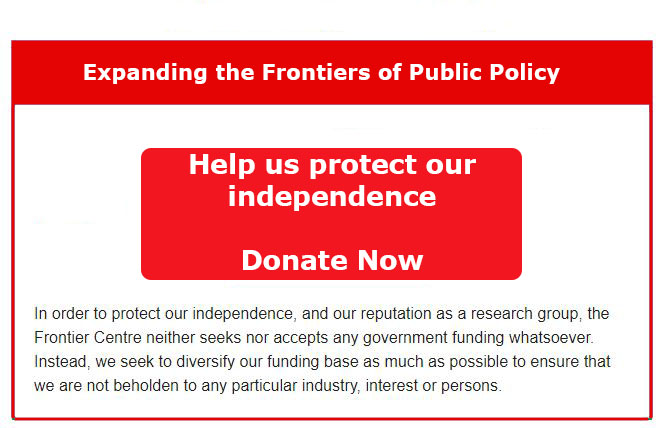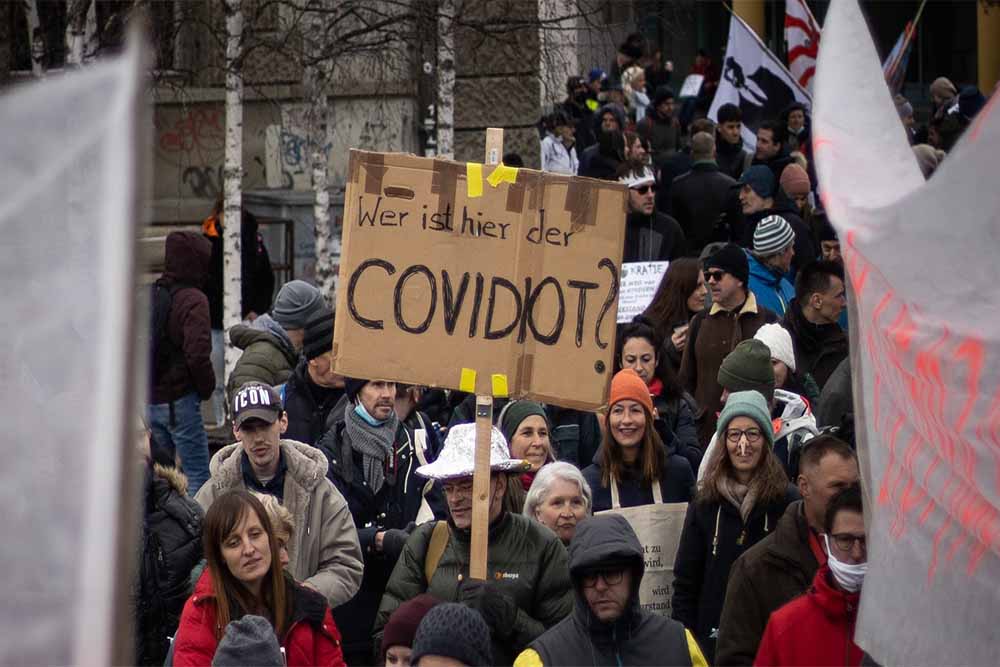Reaction to the major anti-lockdown rally on April 25 at The Forks has been swift and furious. Photos taken without permission by reporters have resulted in the public shaming, and even firing, of people who attended. Strident calls come for action against attendees for spreading the virus—often voiced by the same people who attended or celebrated Black Lives Matter rallies. Anti-lockdown rally attendees are routinely called “COVIDiots” and other such derogatory names. A newspaper described the gathering as a place “where conspiracy theories were spread.” An atmosphere of public lynching prevailed.
But do those vicious sentiments accurately describe the civilized crowd of well over 1,000 people who attended the rally? I am told by people who attended—responsible people—that those one-sided descriptions do not portray the people they encountered there. For instance, a funeral home employee described the grief of seeing young victims of pandemic-related suicides. Others spoke of similar tragedies they were forced to endure during this year of lockdown.
But mostly, the people who attended were voicing their frustration with a lockdown response that has clearly not worked. Despite the lockdown misery caused by a policy of total government control and endless restrictions, nursing home deaths occurred at an alarming rate. (And our hospital system appears so shaky that it always seems to be one bed away from collapse). Moreover, despite the enormous amount of money that has been sent out to people who were deliberately unemployed by the lockdown policy, it is disgraceful that we remain so far behind in vaccine procurement and roll-out.
The rally attendees know this. They are painted as irresponsible, but many are just people who sense that there must be a better way.
And they might be right. There are countries and states that did things very differently. Instead of allowing their governments to assume total control over everyone’s lives, intimidate citizens and legislate a constant yo-yo of endless restrictions, those jurisdictions trusted citizens to make their own health decisions. The government’s role was to keep necessary restrictions, like group size, to a minimum and protect the vulnerable—while keeping the economy healthy. Public health officials stayed within their realm of expertise by giving citizens honest and unbiased information. Individual citizens took it from there.
When this is all over we will have time to honestly examine the results in those countries and states, and see how we stack up against them. But when we do, perhaps we can try for a little civility. Name-calling, public shaming by the government-subsidized media that results in loss of livelihood and public vilification, are not a civilized response.
Recently, a public letter from a group of concerned Manitobans, including a prominent ethics professor, argued for increased restrictions as a way forward out of our pandemic misery. I do not agree with those people, but I recognize the fact that they are all honourable and well-intentioned citizens. Is it too much to ask that those of us who argue for more individual responsibility—and less government intrusion—are granted that same courtesy?
By May 26, when the current restrictions end, the vulnerable groups will be vaccinated. Some of us will argue that restrictions should then come to a permanent end. Others will point to new mutations and want yet more restrictions. Let’s have that argument. But, let’s keep it civil.
And skip the name-calling.
Brian Giesbrecht, retired judge, is a senior fellow at the Frontier Centre for Public Policy.
Photo by Kajetan Sumila on Unsplash.



